 | « Back to article | Print this article |
Inaugurating India's first-ever driverless train operations on the Delhi Metro's Magenta Line on Monday, Prime Minister Narendra Modi said his government unlike its predecessors has taken growing urbanisation as an opportunity and asserted that metro train services will be extended to 25 cities by 2025 from the current 18.
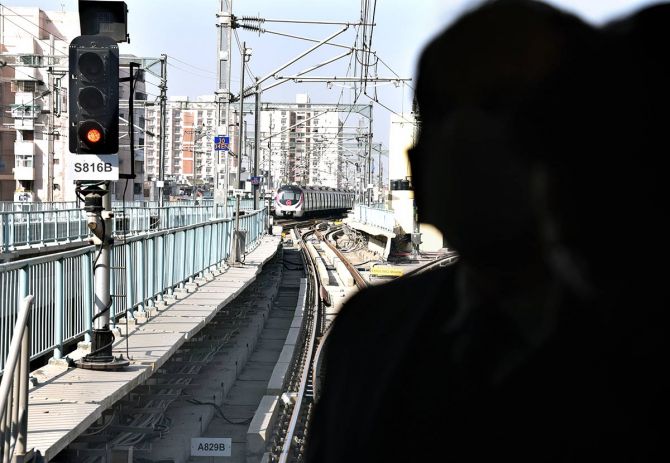
In his address via video-conferencing, he said the launch of the driverless train and start of the National Common Mobility Card, also inauguarated by him on Monday, at the Airport Express Line of the Delhi Metro are an attempt to make urban development future ready.
He lamented that when urbanisation gathered pace a few decades ago, not much attention was given to the needs of the future with 'half-hearted' efforts being made and confusion persisting while the gap between the existing infrastructure and needs grew.
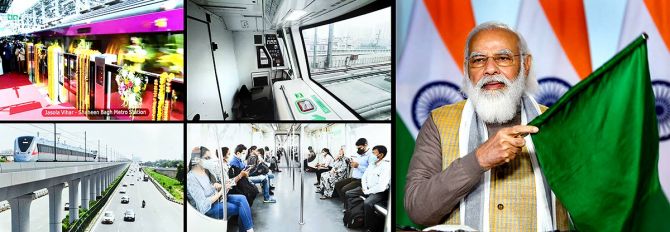
Noting that urbanisation should not be seen as a challenge but used as an opportunity to build better infrastructure and enhance people's ease of living, he highlighted his government's works towards this, saying the number of cities with metro rail has grown from five to 18 now.
By 2025, this is going to be extended to more than 25 cities.
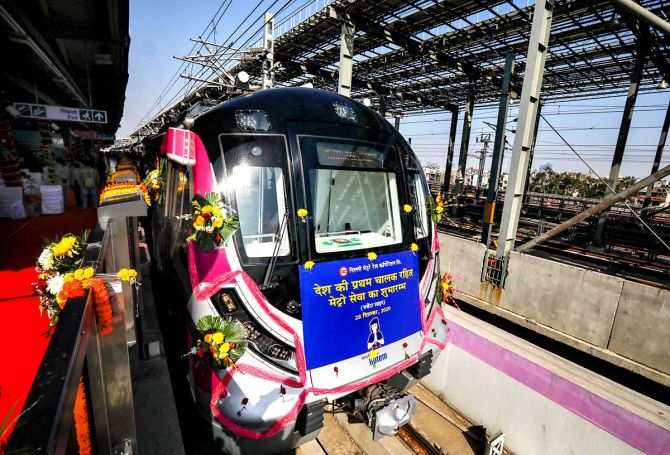
"In 2014, only 248 km of metro lines were operational in the country and today it is about three times, more than 700 kilometres. By the year 2025, we are working to expand it to 1,700 km," he said.
The prime minister asserted these figures are a proof of ease of living in the lives of crores of Indians and an evidence of the fulfillment of the aspirations of the citizens.
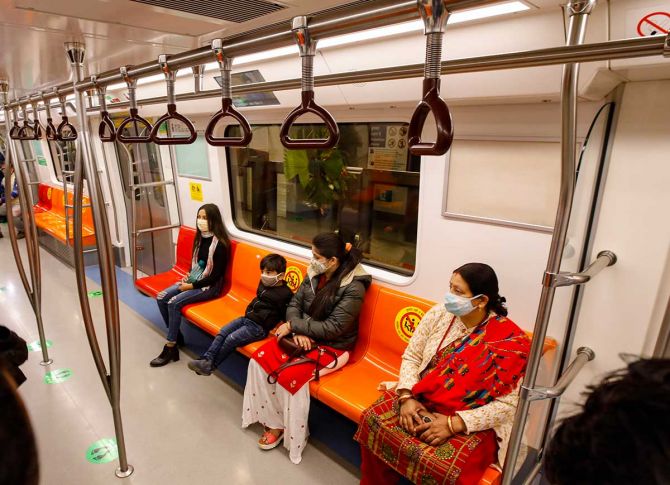
Metro rail is a great way to reduce pollution and has taken thousands of vehicles off roads, he said, adding his government has formulated metro policy as per the needs of a city and its working population.
The government formulated the metro policy for the first time and implemented it with an all-round strategy, he said.
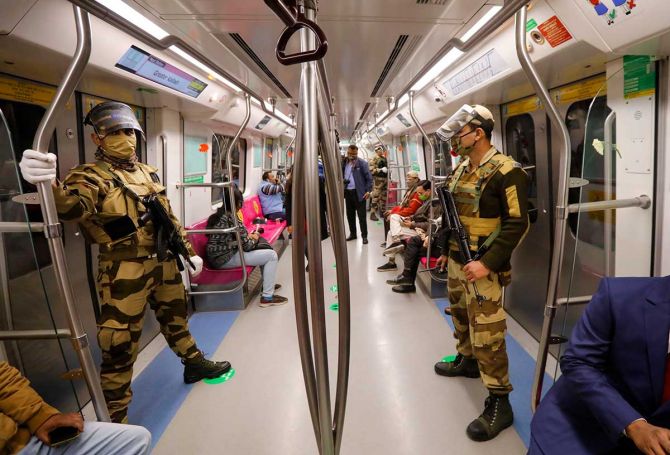
The Regional Rapid Transit System between Delhi and Meerut will reduce the distance between the two cities to less than an hour, he said, adding that for cities with fewer passenger numbers, work is being done on the MetroLite version.
MetroLite version would cost 40 percent less than the normal metro while Metro Neo is being developed in cities with less ridership.
This would be built at the cost of 25 percent of the normal metro, he said, adding that water metro would be an out of the box thinking for cities with large water bodies.
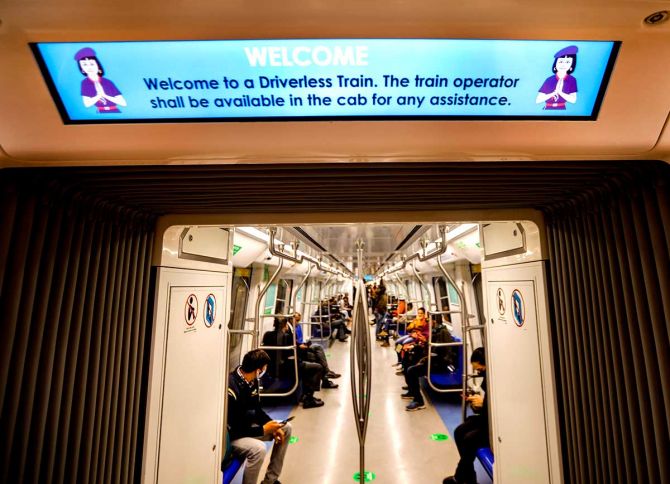
This will provide last mile connectivity to the people near the islands.
Modi also emphasised on the importance of 'Make in India', a reference to domestic manufacturing, in laying out metro services, saying this reduces costs, saves foreign exchange and generates more employment to people.
He said standardisation of rolling stock has reduced the cost of every coach from Rs 12 crore to Rs eight crore now.
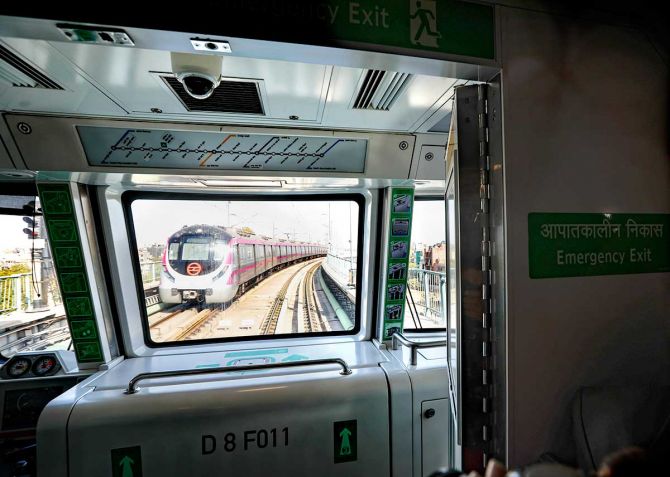
Four big companies are now manufacturing metro coaches in the country and dozens of companies are engaged in the manufacture of metro components, he said, adding that this is helping the campaign for self-reliant India.
With the launch of driverless metro train, India has now joined a select group of countries of the world where the facility is available, Modi said.
Touching on the National Common Mobility Card, he said this will give integrated access to commuters wherever they travel and whichever public transport they take.
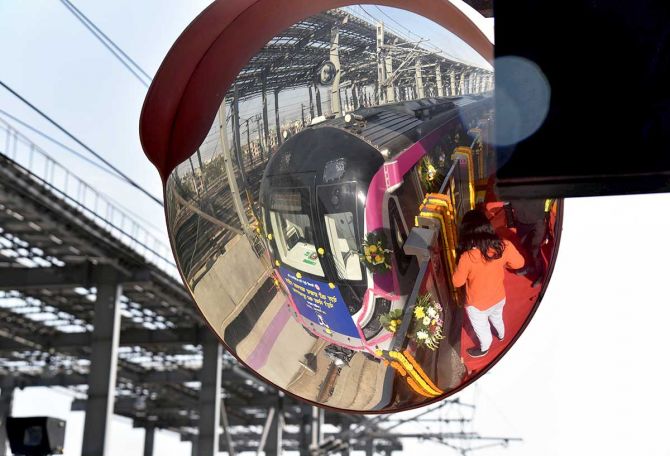
His government has been working to offer integrated services to citizens in different fields so as to save their time and simplify complicated exericses, he said and referred to measures like FASTag cards, one nation one gas grid, seamless gas connectivity, GST and one nation one ration card.
The driverless trains will be fully automated, which will eliminate the possibility of human error, the government has said, adding that after the start of driverless services on the Magenta Line (Janakpuri West-Botanical Garden), the Pink Line (Majlis Park-Shiv Vihar) of Delhi Metro is expected to have driverless operations by mid-2021.
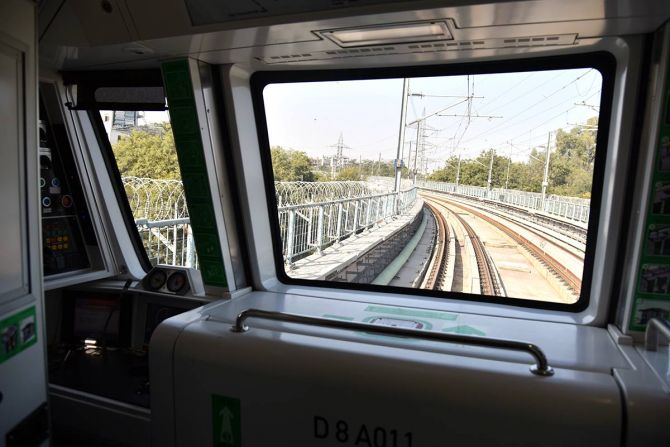
The Prime Minister's Office has said these innovations will herald a new era of travelling comfort and enhanced mobility.
The National Common Mobility Card, which will be fully operationalised on the Airport Express Line, will enable anyone carrying a RuPay-Debit Card issued from any part of the country to travel on the route using it.